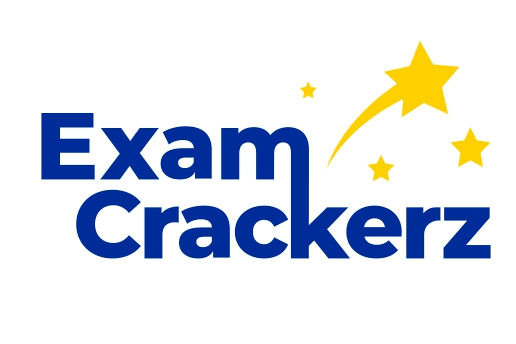2020 is going to be amazing in the IT industry. There will be a lot of learning and unlearning. By the way, Cisco DevNet together with the 200-901 exam will be launched on February 24, 2020. This is a new terrain for many professionals. No doubt, DevOps and programming have become really important in the IT world in recent years. For those specialists who are planning to take up job roles in DevOps, software development, or automation, it is critical to validate their knowledge in this field. For this reason, the DevNet certification track has been developed by Cisco and it is expected to be launched in February, 2020.
The Cisco DevNet certification path is developed to meet the high demand of the evolving IT industry with the focus on DevOps & automation. By the launch of this track, new credentials will be introduced from the Associate level to the Specialist and Professional ones. It is also believed that the expert-level certificates will be added with time. In this blog article, we will give you a closer look at this new Cisco program and different levels that will be available at the launch.
New Cisco DevNet Certification Program
The DevNet certification pathway is a new addition to the Cisco tracks. The certificates under this program are designed to validate the professionals’ skills in areas, such as Cisco programmability strategy, network ops, security, and Cisco APIs. The new path is intended for software developers, DevOps engineers, automation specialists, and other software experts. The DevNet credentials will come in the same path as other Cisco certifications, which means they will be available as DevNet Associate, DevNet Specialist, and DevNet Professional. We will look at these levels one by one.
DevNet Associate
This is the first level in the Cisco DevNet certification path. The candidates for this program will be required to pass one test (200-901 DEVASC) in order to earn the certificate. This exam covers different topics that validate a solid foundation designed for the associate-level professionals. The objectives to be covered in the certification content entail the following:
- Understanding and usage of APIs;
- Software development & design;
- Network fundamentals;
- Application deployment and security;
- Infrastructure & automation;
- Cisco platforms & development.
It is important to note that the associate-level credential is similar to the entry-level certificate and is not designed for the IT specialists with certain specialization. There are no official prerequisites for the Cisco DevNet Associate certification. However, Cisco recommends that the students have more than a year of work experience in software development, including Python programming. This certificate will be valid for a period of three years.
DevNet Specialist
This credential is the next level of the Cisco certification path. From this point, the candidates can begin to focus more on specific specialization areas. There are various options that will be available under this track. From February, the students will have the opportunity to choose among the following exams to obtain this specialist-level certificate:
- Cisco 300-435 ENAUTO;
- Cisco 300-535 SPAUTO;
- Cisco 300-635 DCAUTO;
- Cisco 300-735 SAUTO;
- Cisco 300-835 CLAUTO;
- Cisco 350-901 DEVCOR;
- Cisco 300-910 DEVOPS;
- Cisco 300-915 DEVIOT;
- Cisco 300-920 DEVWBX.
Those individuals who are planning to earn the DevNet Specialist credential are required to pass only one exam to get certified. Additionally, there are no prerequisites for obtaining this Cisco certification. This means that the applicants who are already working and using any of these skills can choose this certificate that aligns with their current job role.
DevNet Professional
This is the highest level in this new certification path that will be launched on February 24, 2020. The candidates for this credential will be evaluated based on their knowledge and skills in using APIs, application deployment, Cisco platforms, infrastructure, automation, and security. The core exam for this certificate is 350-901 DEVCOR. You can learn more about it on the official webpage. You have to get the Cisco Certified DevNet Specialist credential to complete the core test. The concentration exams will focus on specific domain topics and the individuals will have to take one of them in order to earn Cisco Certified DevNet Professional. The concentration tests you have to choose from include:
- Cisco 300-435 ENAUTO;
- Cisco 300-535 SPAUTO;
- Cisco 300-635 DCAUTO;
- Cisco 300-735 SAUTO;
- Cisco 300-835 CLAUTO;
- Cisco 300-910 DEVOPS;
- Cisco 300-915 DEVIOT;
- Cisco 300-920 DEVWBX.
If you look at these exams closely, you will realize that they are similar to those from the DevNet Specialist certification track. The implication of this is that you will showcase your DevNet Professional with your specialist-level credential. Essentially, these certificates are valid for a period of three years and there are different options of recertification for them.
DevNet Expert
Nothing special was said about the expert-level credential and for good reasons. It is not likely that this Cisco certification will be launched alongside other DevNet paths by February 24, 2020. However, this doesn’t mean it won’t be released in the near future. It is expected that Cisco will release this certificate afterwards. The tracks and prerequisites for this expert-level credential have not been announced, which means we will have to wait until more details are given.
Conclusion
If you are planning to get certified in the area of DevNet, the certificates highlighted above are what you should focus on in 2020. Regardless of the level that you want to achieve in the DevNet certification path, the most important thing is to get one. You can start with the lowest level and go to a higher one. It can be difficult at first, but then it will be easier. And if you like it, why don’t you try to obtain another one? Start your year and decade with a new credential in your CV.




